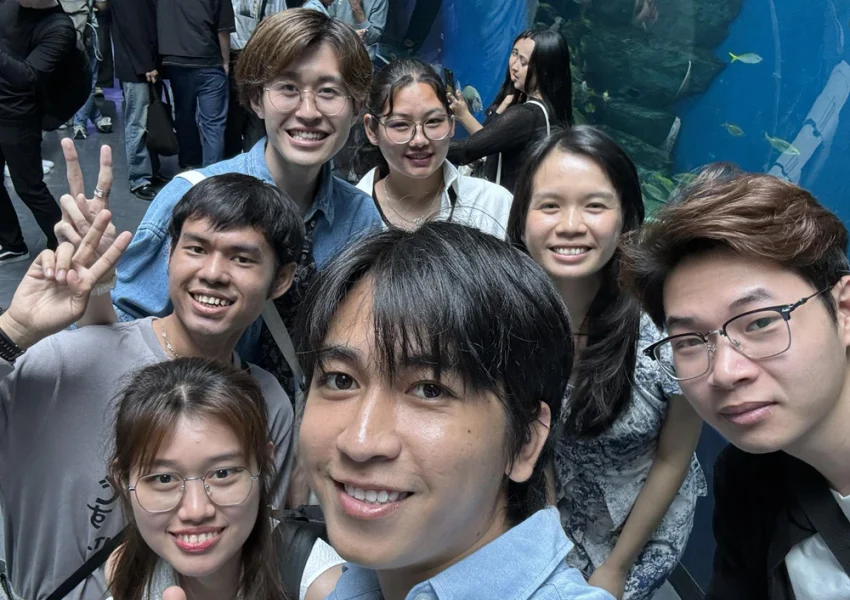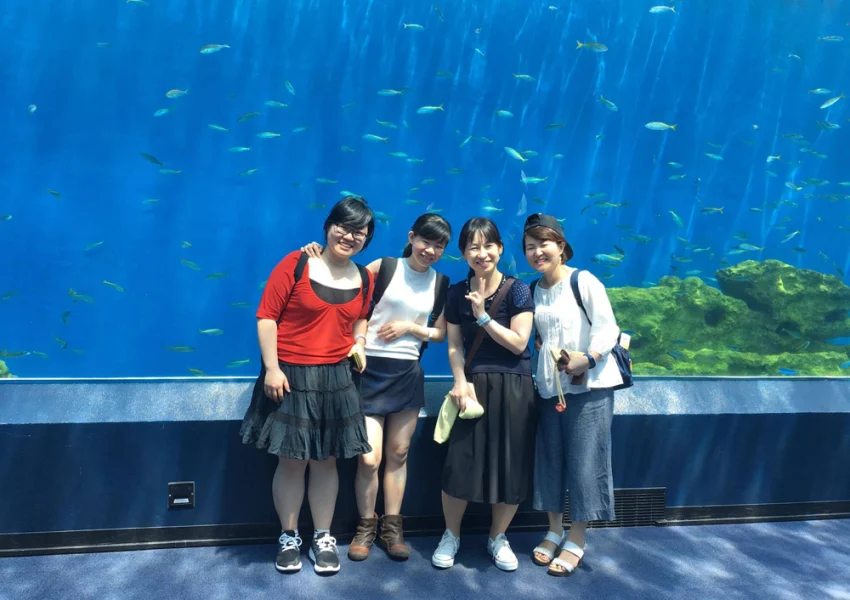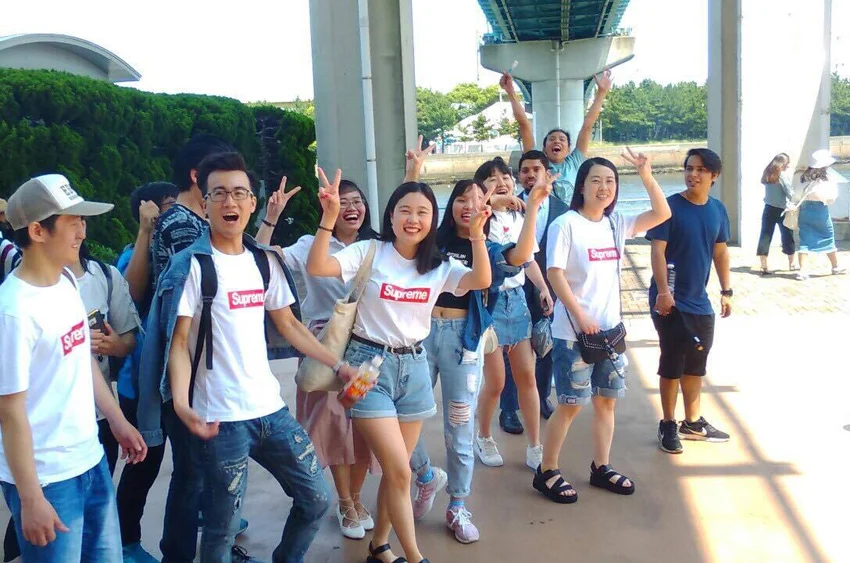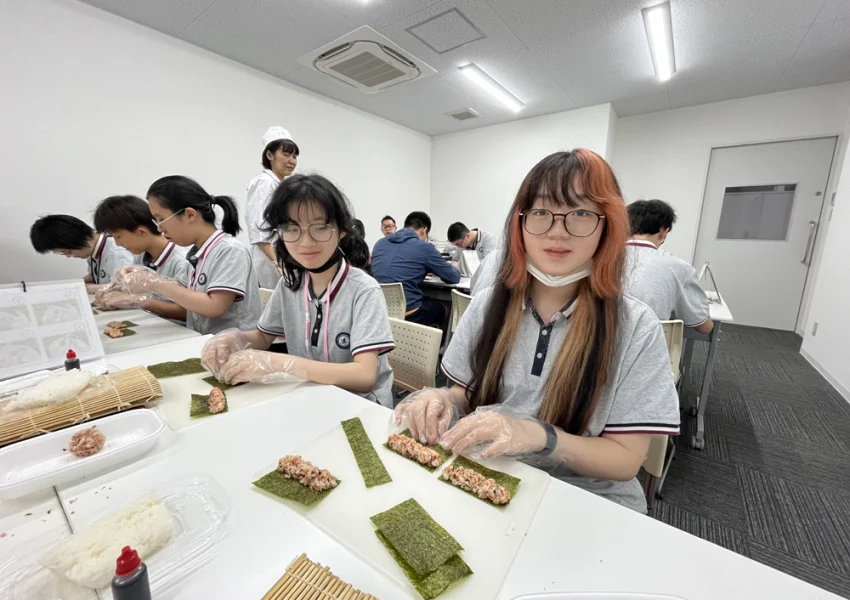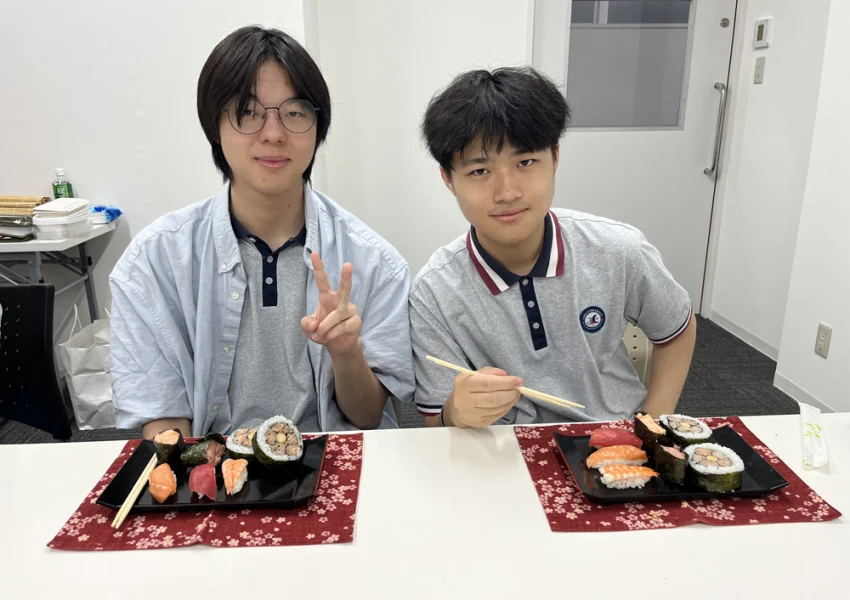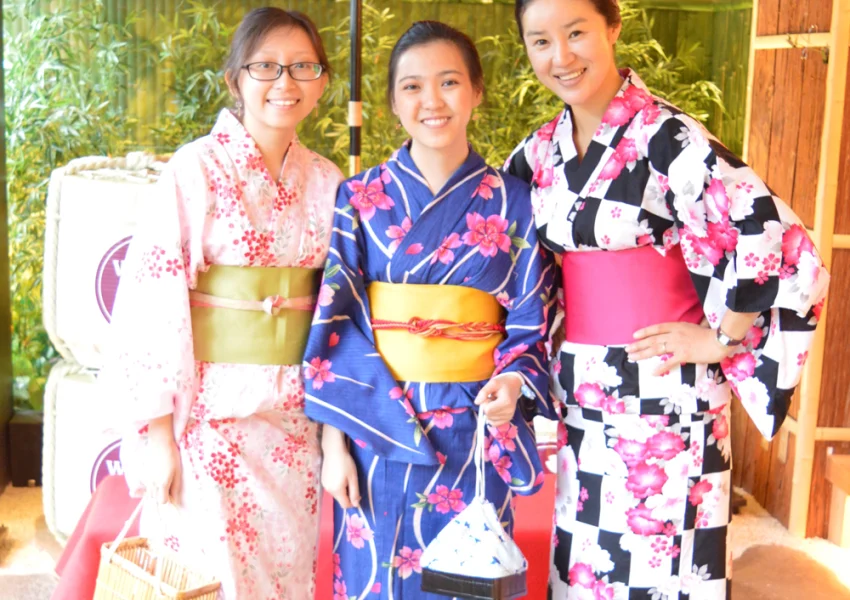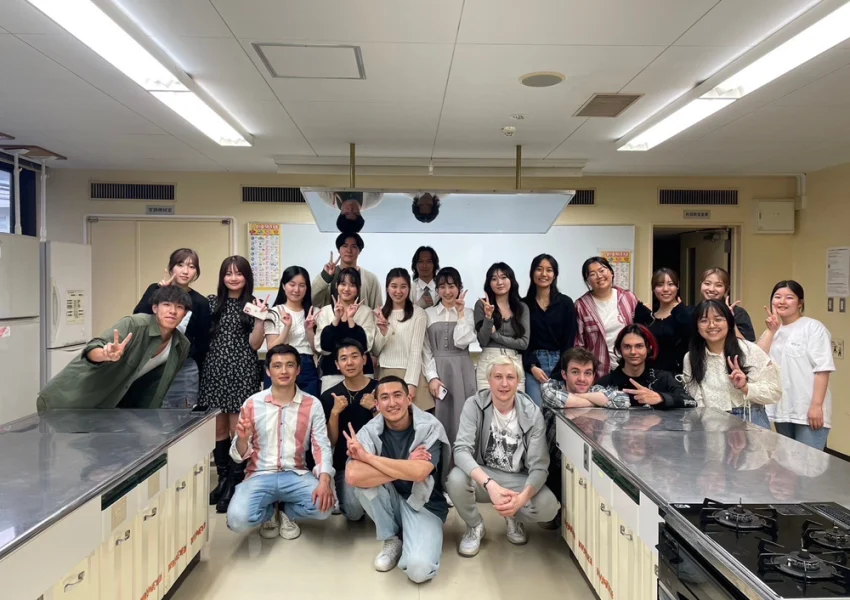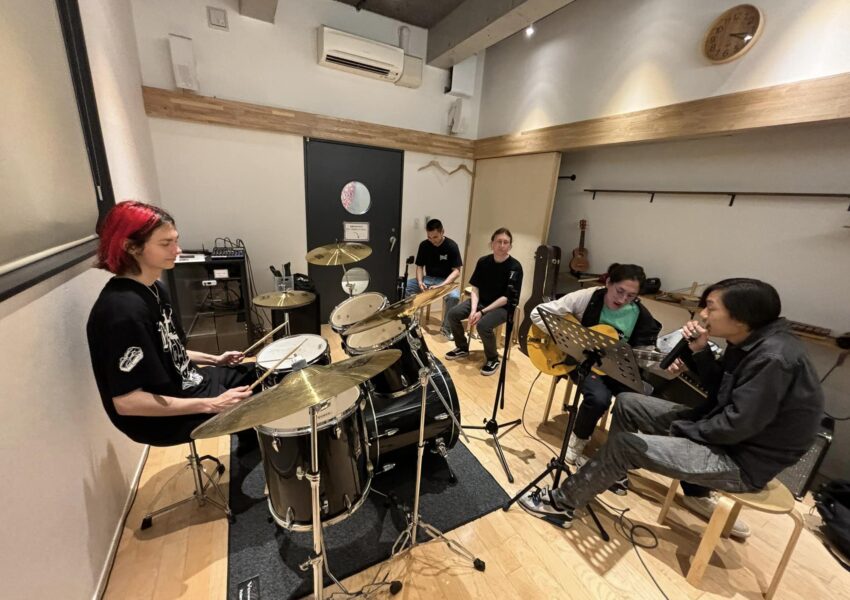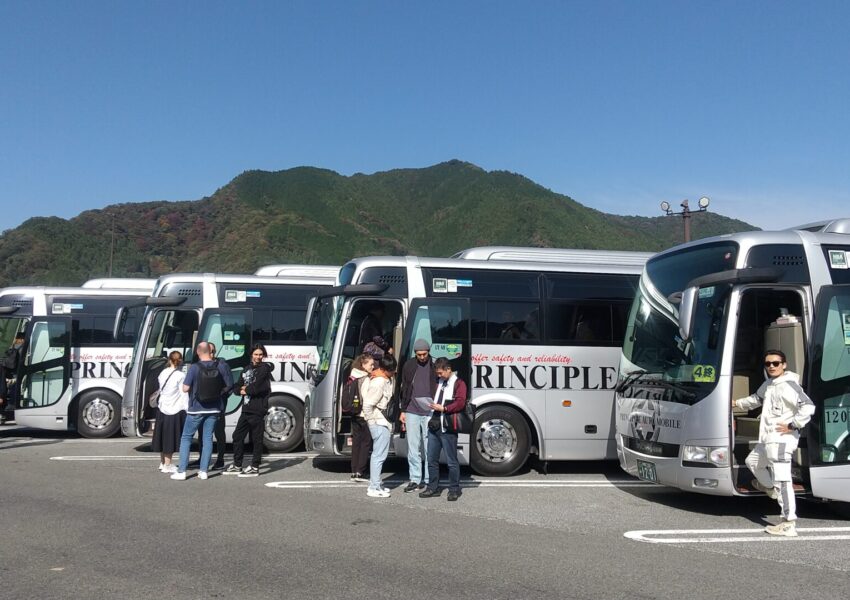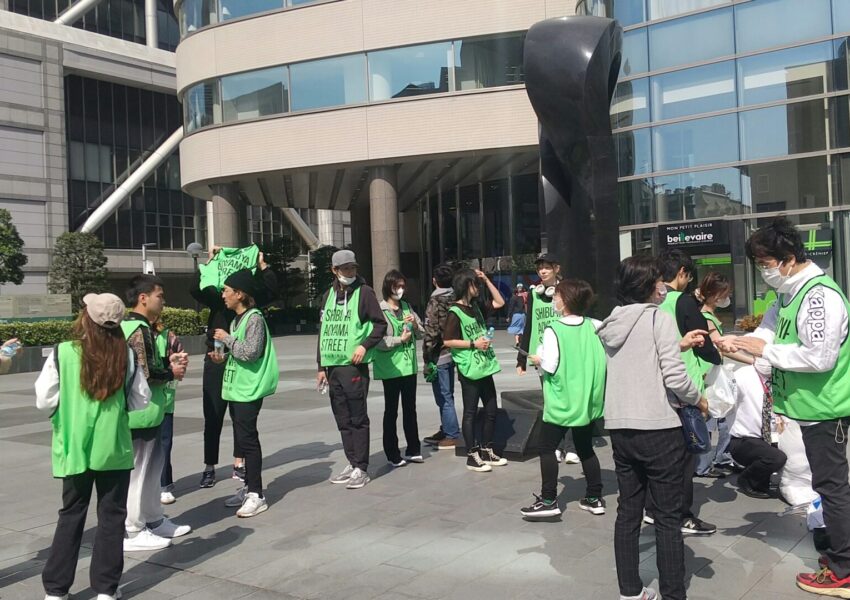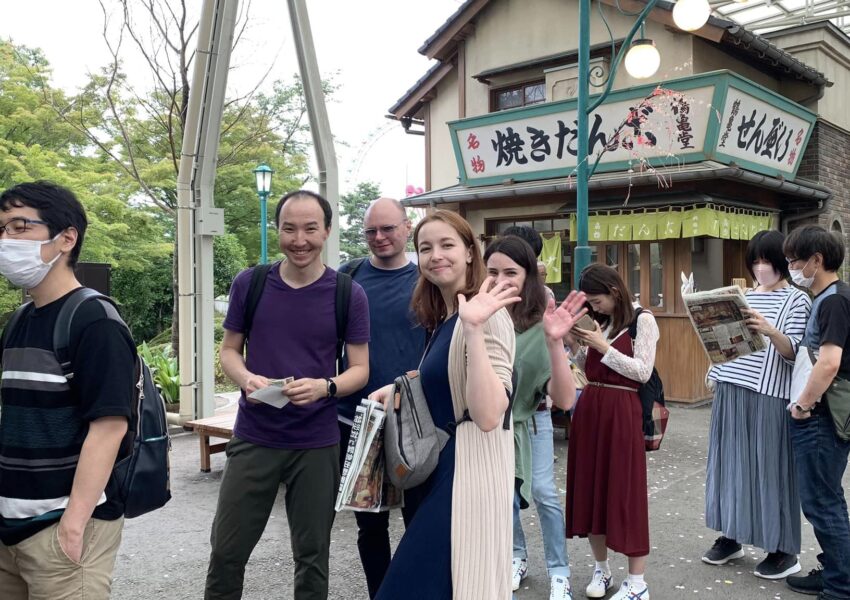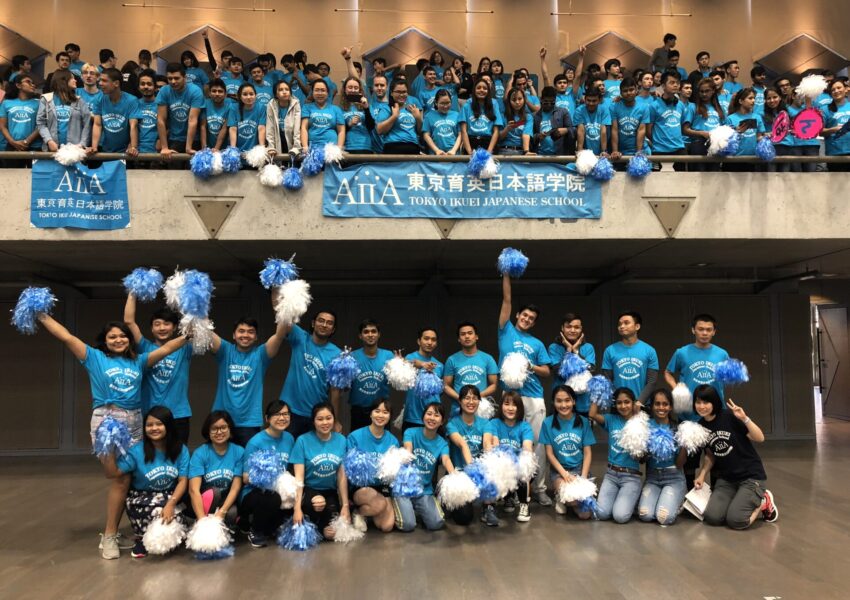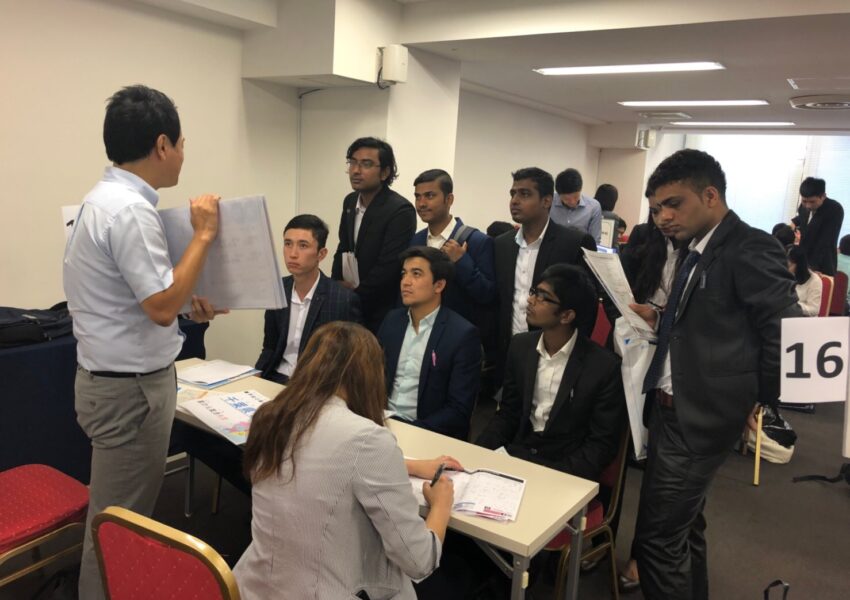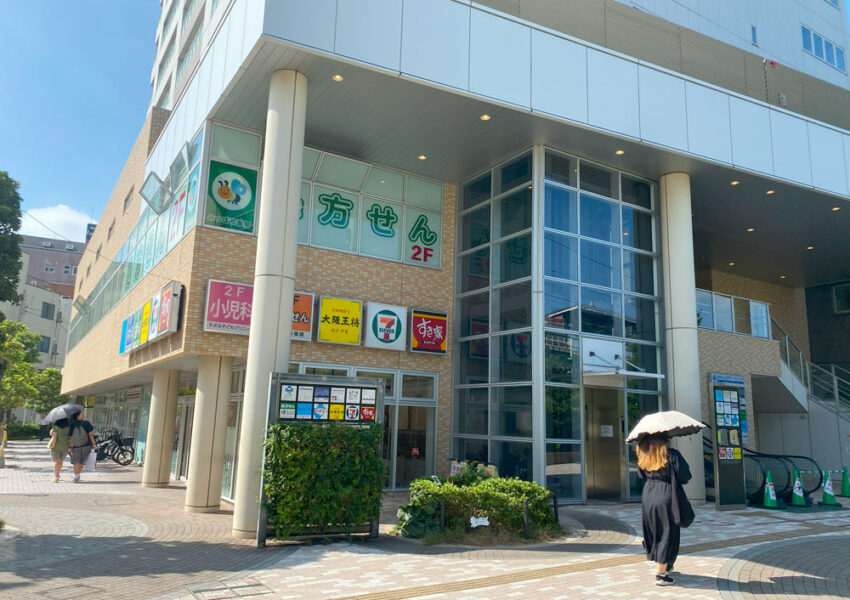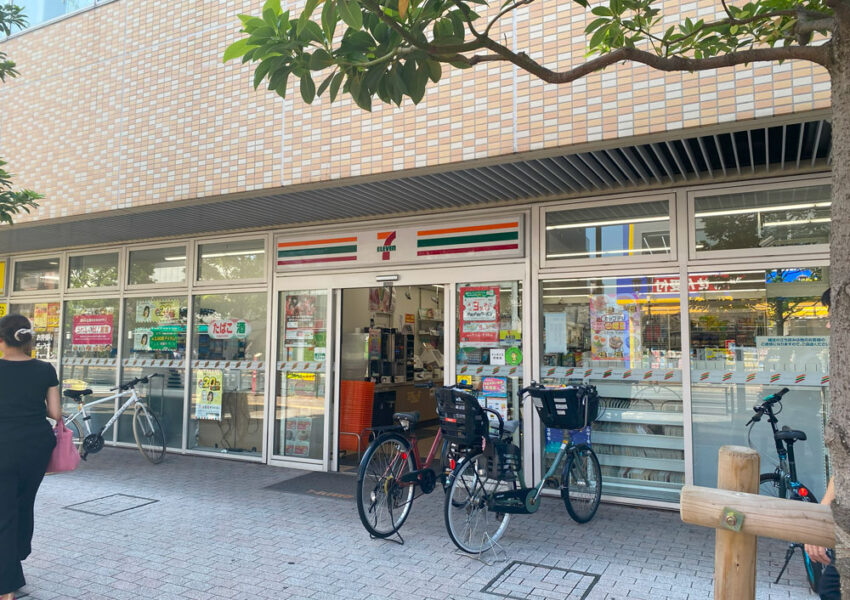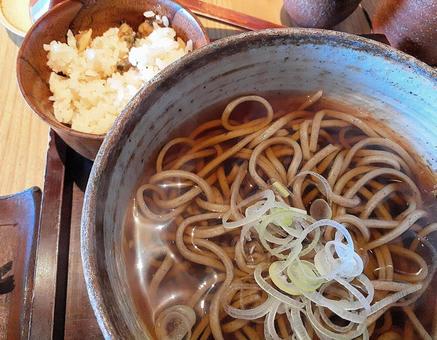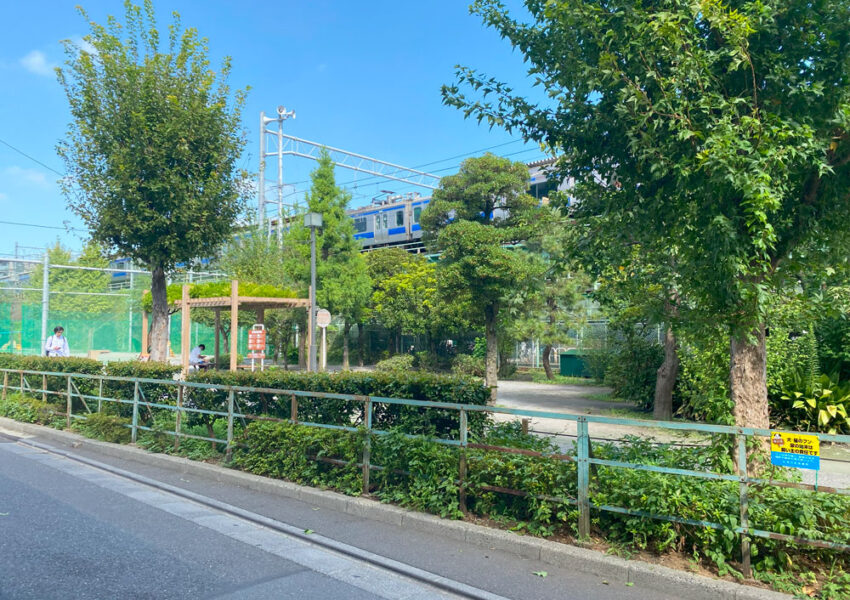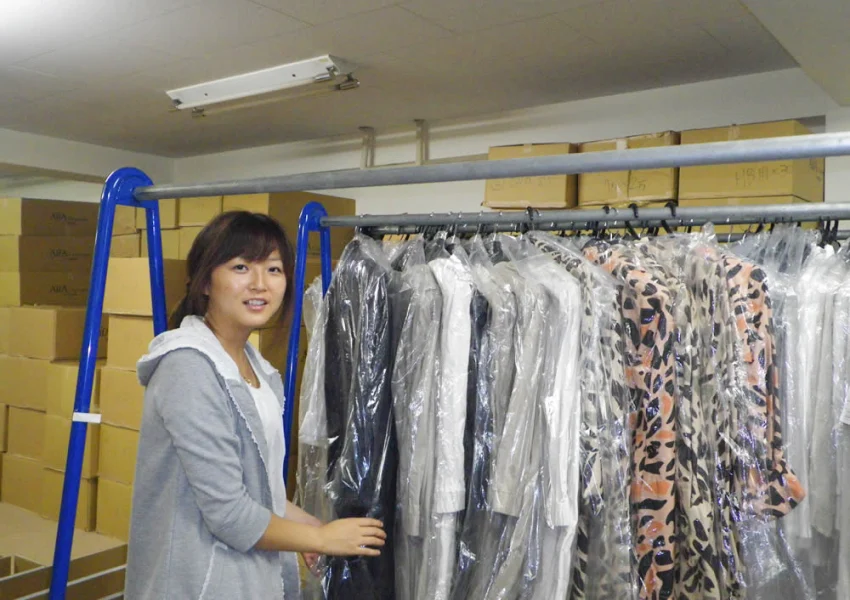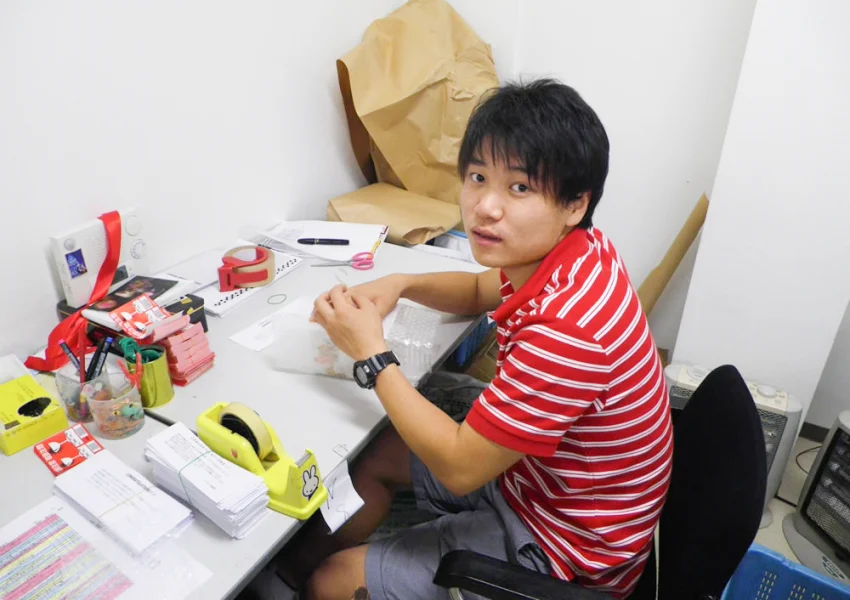
Campus life
Annual Schedule
| April |
|
|---|---|
| May |
|
| June |
|
| July |
|
| August |
|
| September |
|
| 10月 |
|
| November |
|
|---|---|
| December |
|
| January |
|
| February |
|
| March |
|
- Events may change from year to year.
Activities
We prepare events for students to learn about Japan outside of school.
Volunteer
Our institute is actively involved in volunteer activities.
We have done various volunteer activities such as cleaning up the city, making and sending aprons to nursing homes, etc.
Study tour
Twice a year, all students go on a one-day trip together.
Students of different nationalities form groups, and when they arrive at the destination, they work as a group. The common language is Japanese. Students can train their conversational skills in Japanese while having fun at the same time.
College Fair
This is a fair held by the student recruiters of universities and vocational schools. By attending these fairs, you can obtain detailed information about the school you are aiming to enter.
Cultural Experience
Once a year, we offer a Japanese culture experience day.
Visitors can experience a variety of Japanese cultural activities, from traditional ones such as tea ceremony, sushi, and making candy crafts to food samples and anime postrecording.
Commendation or awards ceremony
We hold an award ceremony to recognize students who have achieved excellent grades with the Step Up Award and the Academic Achievement Award.
Other
University exchange / Band activity / Food bank / Sports competition / Speech contest / Cherry blossom viewing / Tanabata Festival / Halloween / Christmas and more!
- Activities may change from year to year.
How a student spends a day
Good thing I studied beforehand before coming to Japan.

Intermediate I A Course
Ms. POLINA
Nationality: Russian
Having traveled to many different countries, I have become most interested in Japan. I am also fascinated by Japanese culture.
Although I still need to study Japanese, I have been self-studying for about an hour every day in addition to my school lessons. I chose Tokyo Ikuei through an Internet search and YouTube videos; I made direct contact with a student who had commented on YouTube about the school’s good reputation and decided to enroll.
I actually joined a class and enjoyed learning. As for advice to prospective students coming to Japan, I recommend that they learn basic Japanese. If you learn hiragana and katakana beforehand, you will be able to start learning in Japan smoothly and grow faster!
| Ms. POLINA’s daily schedule | |
| 7:00 | Rising |
| 8:00 | Get ready for school |
| 9:00 | Class starts |
| 12:40 | End of class |
| 13:00 | Lunch with friends, shopping, studying, etc. |
| 16:00 | Part-time job |
| 22:00 | End of part-time job |
| 23:00 | Going to bed |
Messages from current students
Attractive not only in the curriculum but also in the variety of activities

Preparatory Course III A
Mr. JOHANES JULIAN GUENTER
Nationality: German
I had come to Japan on a working holiday, and at that time I became interested in learning about Japanese culture.
However, I could not speak Japanese well at the time, so I wanted to study Japanese to be able to communicate with others, which is when I started thinking about studying Japanese.
I found Tokyo Ikuei through my own research on various Japanese language schools. I had attended other Japanese language schools, but Tokyo Ikuei has a rich curriculum of classes as well as activities, so I am able to experience the Japanese culture and customs that I originally wanted to experience.
It is still difficult for me to learn kanji and to find a job in Japan, but I hope to gradually clear my goals!
I recommend using manga to study Japanese.
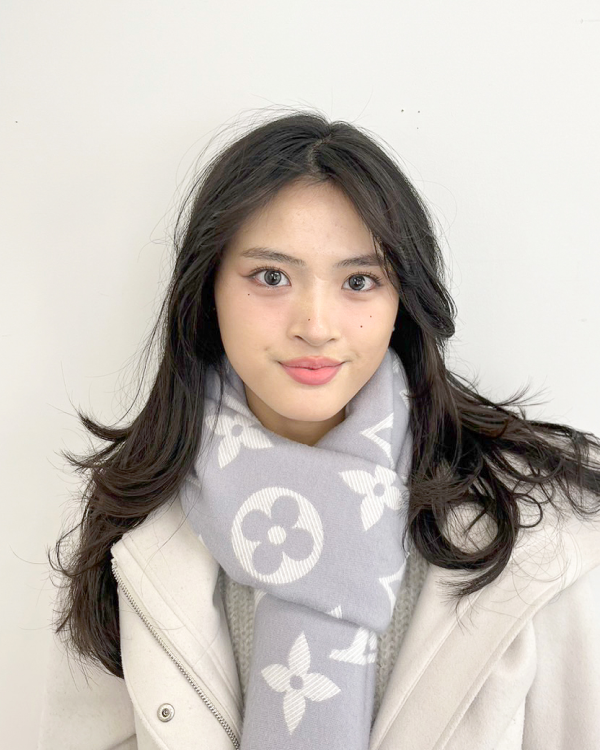
Preparatory Course III A
Ms. KEGAN YONGPARTE
Nationality: Indonesian
I was fascinated by Japanese culture, anime, and artists and decided to study in Japan.
I chose Tokyo Ikuei as my study abroad destination because it was recommended to me by my agent. Since I actually started attending the school, I feel that I am able to learn Japanese in a very good environment thanks to the teachers’ easy-to-understand lessons and kind guidance.
Furthermore, since the school is located in the center of Tokyo, access to various places is very convenient. I often use manga to study Japanese. The kanji with furigana are easy to read, and in my opinion, this is one of the most effective ways to learn Japanese. After graduating from Tokyo Ikuei, I plan to continue my Japanese language studies and go on to higher education after finishing school.
He actively speaks Japanese even in his part-time job, further improving his Japanese!

Intermediate I P Course
Mr. ISURU LAKSHAN DEVWANTHA
Nationality: Sri Lanka
I chose Tokyo Ikuei because it was recommended to me by an agent when I was studying Japanese in Sri Lanka.
When I came to Japan, I could not speak Japanese well and had many difficulties in daily life. However, through my studies at Tokyo Ikuei, my Japanese language skills have gradually improved.
Currently, I am working part-time at a Japanese transportation company, and I feel that my Japanese is improving further as I speak while working there.
What I find particularly difficult in Japanese is “kanji” (Chinese characters), and I try to memorize them by writing them over and over again when I study.
I have not yet decided on my future, but I hope to find something I like to do and find a job in Japan.
Serious study for employment in Japan
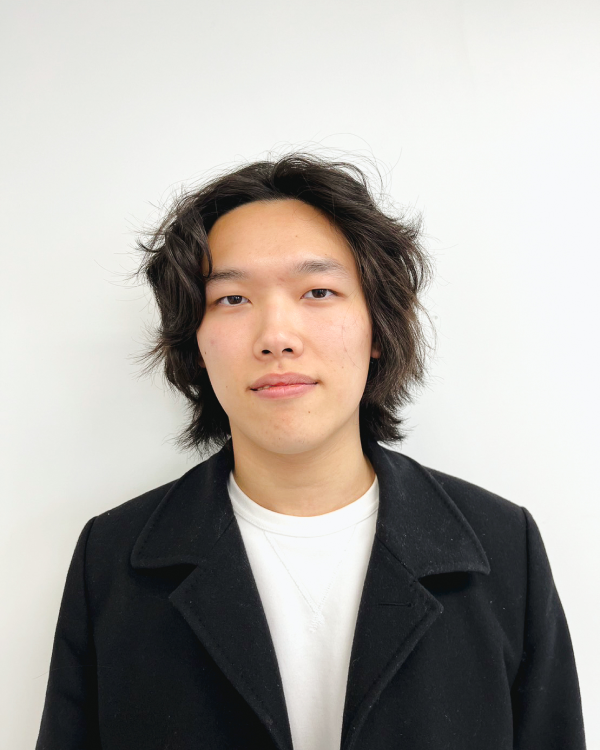
Advanced I A Course
Mr. SHEUNG YUNG
Nationality: China Hong Kong
Before studying at Tokyo Ikuei, I had visited Japan three times.
I really liked the friendly atmosphere and customs of Japan that I felt at that time, and I began to think that I wanted to come to Japan.
The reason I chose Tokyo Ikuei was that I met the staff of Tokyo Ikuei while I was searching for various Japanese language schools and decided to come.
The part of studying Japanese that I find difficult is grammar. What I am trying to do to improve my Japanese is to participate in cross-cultural communities and learn Japanese while interacting with foreigners and Japanese people who can speak Japanese.
I study Japanese while getting together with people from different countries, doing activities, and going on trips.
After graduating from Tokyo Ikuei, I plan to continue working and living in Japan.
Ikuei’s classes are careful and easy to understand.

Intermediate III A Course
Mr. EDUARD
Nationality: Belarus
I came to Japan because I wanted to find a job in Japan in the future.
One of the reasons I decided to come to Japan to study was because I like Japanese culture. On my days off, I go to nearby temples and go sightseeing in Tokyo.
I think that Tokyo Ikuei is a very good school as a learning environment because the teachers are very attentive and easy to understand.
In addition, since people of various nationalities come to study at this school, I can interact with students from other countries during breaks and at the end of classes, and I can meet people from different cultures.
Outside of school, I study Japanese for about 3 hours every day.
I like Japanese anime and manga, so I read manga and study kanji.
Balancing part-time work and studying is tough, but I am able to lead a fulfilling life every day, so I would recommend that anyone who wants to come to Japan to study should also study at Tokyo Ikuei!
If you do your studies properly, you will have more options for both higher education and employment.
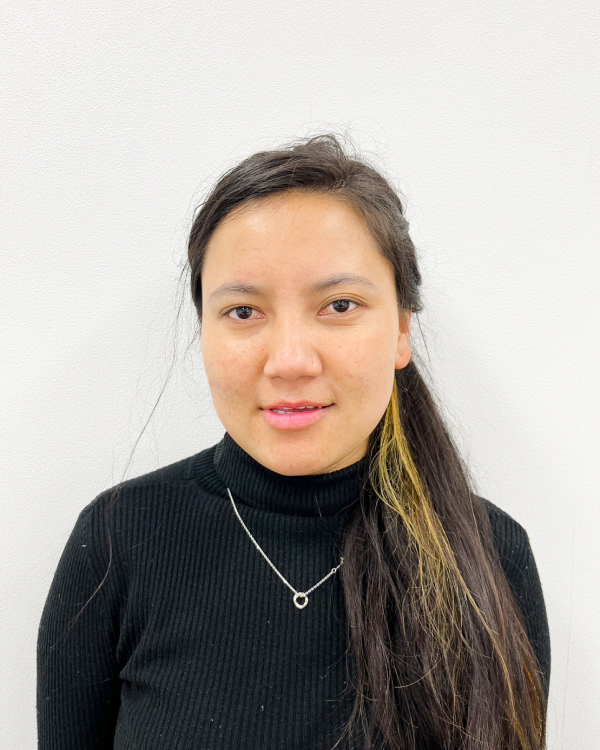
Intermediate II P Course
Ms.SUMITRA
Nationality: Nepalese
The reason I wanted to study in Japan was because when I lived in Nepal, I watched my neighbor’s sister learning Japanese.
The classes at Tokyo Ikuei are easy to understand and I enjoy learning, but I still find it difficult to apply what I have learned in real life. Outside of the classroom, I mainly study Japanese through my part-time job and YouTube.
At my part-time job, I gradually became able to speak Japanese by asking questions and talking to Japanese co-workers, and on YouTube, I watch Japanese content with English subtitles to learn.
What I would like to tell future students coming to Japan to study is that it is a good idea to devote the two-year study period to study and part-time work.
Sightseeing and having fun in Japan are important, but if you concentrate and make an effort to study Japanese, you will have more options for further education and employment, so I would recommend that you spend a meaningful time in Japan.
Student Nationality breakdown
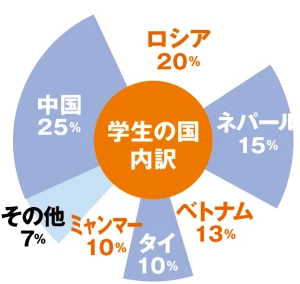
China 25% / Russia 20% / Nepal 15% / Vietnam 13% / Thailand 10% / Myanmar 10% / Others 7%
Others (7%)
Belarus, Estonia, Latvia, Lithuania, Kazakhstan, Uzbekistan, Sri Lanka, South Korea, USA, Germany, France, Italy, Spain
Surrounding Area
Nippori is an attractive town with many convenient locations.
It has many other great things to offer!
 Supermarket
Supermarket Convenience store
Convenience store Drug store
Drug store Soba restaurant
Soba restaurant Park
Park
Part-time job
Since you are coming to Japan to study Japanese, part-time work that would interfere with your studies is not permitted. However, there may be times when you need to take on a part-time job to make up for shortfalls in living expenses, etc.
So, here are some things to keep in mind when working part-time in Japan.
- In order for international students to work part-time in Japan, they must obtain a permit to engage in activities other than those permitted under the status of residence permitted under the visa in advance. This can be obtained when entering Japan, or you can request it from the school after entering the country. You can start working after the permit has been issued.
- International students are not allowed to work part-time for more than 28 hours per week.

- International students are not permitted to work in establishments that operate adult entertainment businesses or store-based sexual entertainment special businesses, non-store-based sexual entertainment special businesses, video transmission-based sexual entertainment special businesses, store-based telephone dating businesses, or non-store-based telephone dating businesses.
Our school will help you find a simple part-time job at our parent company, Aia Corporation. We will also introduce you to a part-time job that we have researched and determined you will be able to work comfortably. A minimum level of Japanese language ability is required to work part-time. If you cannot understand instructions given in Japanese by Japanese people, it will be difficult to secure a part-time job.
For this reason, it is difficult to find a part-time job immediately after arriving in Japan. Most people find a part-time job after taking Japanese language classes at school for about three months.
Do not expect to be able to find a part-time job immediately after arriving in Japan, or to start receiving part-time wages from the following month.

